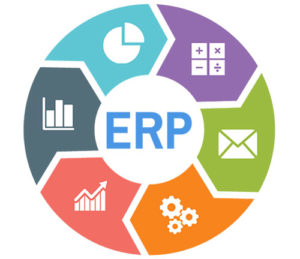 Introduction
Introduction
In the dynamic and fiercely competitive business landscape, companies continue to turn to advanced Enterprise Resource Planning (ERP) systems to stay ahead. This article sheds light on the pivotal role that organizational culture plays in the success of ERP implementation, emphasizing its profound impact on organizational change in this tech-driven era.
Organizational Culture: Beyond the Buzzword
While many recognize the importance of organizational culture in ERP implementation, culture is more than just a buzzword. Defining corporate culture as a complex system of norms and values and plays a critical role in shaping the success of ERP projects, drawing on research that underlines its influence at individual, group, and societal levels. Organizational culture and related organizational influences are necessary to understand because as described by Dr. Denison, Michael G. Schwendeman, and the Denison Consulting team, organizational culture characteristics (which can be measured and monitored) may have predictable impact on the effectiveness of ERP organizational change.
Linking Culture to Financial Performance Metrics
Highlighting the direct correlation between organizational culture and financial performance, a healthy culture contributes to ERP organizational change success. Metrics such as return-on-assets (ROA), sales growth, and market-to-book ratio are examined, emphasizing the enduring impact of culture as a competitive edge in the fast-paced business landscape.
Innovation and Culture: A Symbiotic Relationship
Acknowledging innovation as a key influence on ERP organizational change, an organization’s ability to innovate is deeply intertwined with its culture. Success in implementing creative ideas is crucial for staying competitive, and the article discusses the direct evidence linking culture to innovation, providing insights into the long-term survival of organizations.
Employee Engagement: The Driving Force
Focusing on the critical connection between culture and employee engagement, high-engagement cultures foster autonomy, teamwork, and idea sharing. The integral role of clearly defined mission, vision, and goals in promoting employee engagement, is essential for a successful ERP organizational change.
Measuring Culture: The Denison Model
Recognizing the need for a structured approach, the Denison Model is a valuable tool for assessing organizational culture. Dr. Dan Denison’s pioneering work offers organizations a way to discern their cultural strengths and weaknesses, providing a roadmap for ERP change readiness and emphasizing the importance of tangible and measurable cultural insights.
Culture as a Tangible Driver of ERP Success
There exists a very real and tangible impact of organizational culture on ERP organizational change. By understanding and measuring culture using tools like the Denison Model, organizations can enhance their change readiness, ensuring a smoother and more successful ERP implementation journey.
Learn more
Jack (Partner at Nestell & Associates) and Michael G. Schwendeman (Research Consultant at Denison Consulting) coauthored a short article for the “Tech Features” section of the March 2020 issue of Fashion Mannuscript Magazine’s “The Men’s Issue”.
READ MORE: https://mydigitalpublication.com/publication/?i=651357&ver=html5&p=68
Fashion Mannuscript is a monthly business-to-business magazine that delivers extensive photo coverage of top fashion industry events, well-penned columns by experts in the community, and profiles of the people and companies behind some of the biggest deals in fashion. Fashion Mannuscript’s style – utilizing the perspectives of attorneys, accountants, boutique owners, career advisors, and tech innovators – is what differentiates it from other trade publications and makes it a must-read for those who wish to be well-informed on all things fashion.
